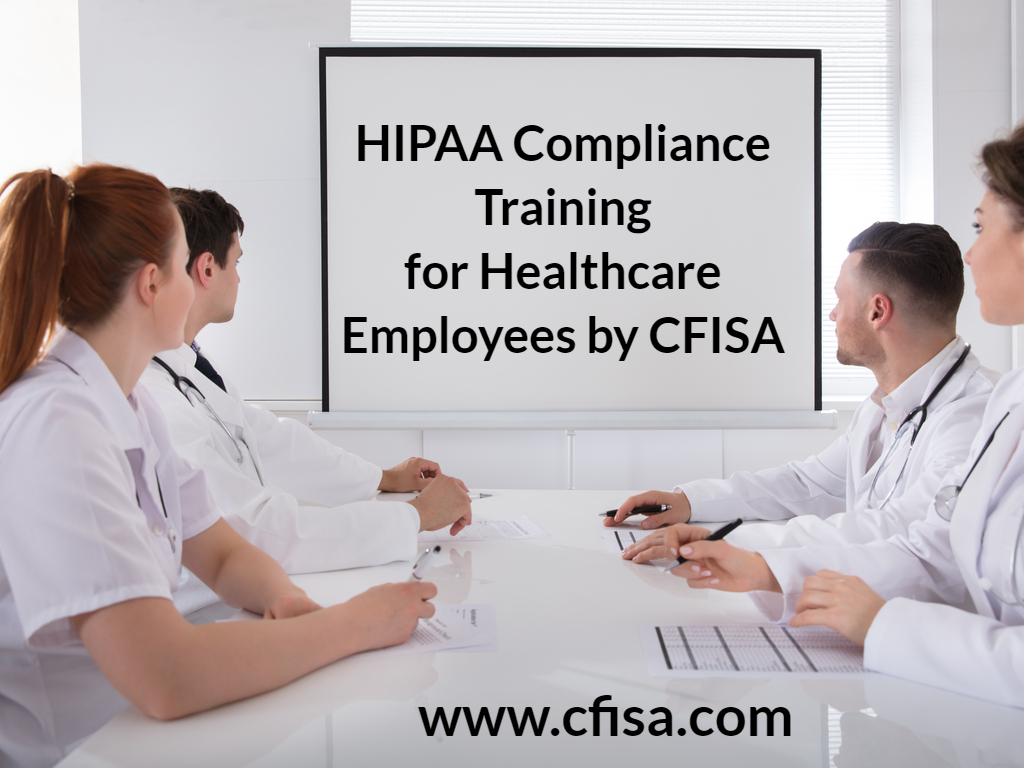The Health Insurance Portability and Accountability Act (HIPAA) serves as a critical safeguard for the protection of sensitive health information. HIPAA training is a requirement for all employees in the healthcare sector that handle or have access to patient health records in any form. In this article, we explore the fundamental aspects of HIPAA training, certification processes, and shed light on why the CFISA HIPAA Training is a valuable choice for organizations of all sizes.

What is HIPAA Training?
HIPAA training is a focused designed course to educate healthcare professionals, administrators, and individuals handling protected health information (PHI) about the regulations outlined in the Health Insurance Portability and Accountability Act. This training ensures a comprehensive understanding of HIPAA standards, promoting the secure handling of patient data.
How Long Does it Take to Get a HIPAA Certification?
The duration of obtaining a HIPAA certification can vary based on factors such as the level of certification and the individual’s prior knowledge. Typically, the general HIPAA employee training can be completed within a few hours or less. This training is an essential investment in healthcare education. You can learn more about why HIPAA training is crucial and contributes to overall compliance by viewing the CFISA article on Why HIPAA Training Is Necessary.
How Do I Get a HIPAA Compliant Certificate?
To obtain a HIPAA compliant certificate, professionals undergo training from recognized providers. The CFISA HIPAA Employee Training and Security Awareness Training offers a comprehensive course covering essential aspects of HIPAA compliance along with cybersecurity awareness training. What sets CFISA apart is its commitment to providing high-quality training that is not only effective but also cost-efficient.
Why CFISA HIPAA Training?
- Cost-Effective Training: CFISA’s HIPAA Training is designed with cost-effectiveness in mind. Recognizing the budget constraints faced by healthcare organizations, CFISA provides top-notch training without compromising on quality. This makes it a straightforward and affordable choice for organizations of all sizes.
- High-Quality Education: The CFISA HIPAA Training program stands out for its high-quality educational content. Backed by industry experts, the training covers the latest updates and best practices in HIPAA compliance. This commitment to excellence ensures that professionals receive relevant and up-to-date information.
- Security Awareness Training: In addition to HIPAA compliance, CFISA’s training includes valuable security awareness components. This goes beyond the basic requirements, equipping healthcare professionals with the knowledge and skills needed to tackle evolving cybersecurity challenges in the healthcare sector.
Who Needs HIPAA Certification?
HIPAA certification is crucial for healthcare providers, administrators, IT professionals, and anyone handling patient data. Compliance with HIPAA regulations is essential to ensure the confidentiality, integrity, and availability of sensitive health information. The Why HIPAA Training Is Necessary article further elaborates on the importance of this training in different healthcare settings.
Conclusion
In conclusion, investing in comprehensive HIPAA training is not just a necessity but a commitment to upholding the highest standards of patient data protection. With CFISA’s HIPAA Training, healthcare organizations gain a cost-effective, high-quality solution that includes crucial security awareness training.
Click here to view a short demo of the CFISA HIPAA Training.
Do you need help with security awareness training for your employees?
CFISA’s Security Awareness Training courses are designed to educate employees on proper cyber and data security behavior to best protect your organization from a catastrophic data breach.
